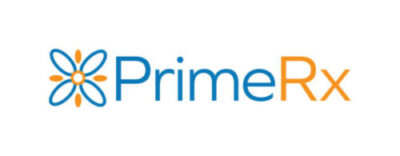
The Roles of Pharmacists during Influenza Season
The Centers for Disease Control and Prevention (CDC) predicts another busy influenza season across the U.S. and recommends everyone 6 months of age and older receive an updated vaccine unless underlying conditions pose a risk. The health agency advises that September and October are the ideal months during which most people should get vaccinated, to ensure maximum protection.
Pharmacists will again have an essential role, both in educating patients about the need to protect themselves from the flu, and in administering the vaccine. The National Community Pharmacists Association (NCPA) reports more than 60% of community pharmacies offer immunizations, demonstrating just how integral this patient service has become to today’s pharmacy practice. By some estimates, more immunizations are administered in pharmacies than in medical offices. A 2023 report by the Global Healthy Living Foundation found roughly 60% of vaccinations during the 2020-2021 influenza season took place in pharmacies. The report noted a sharp increase in not only flu shots, but in pharmacy-administered COVID-19 and shingles vaccinations as well.
As pharmacists prepare for the 2024-2025 flu season, it’s important to ensure a high degree of awareness about this year’s flu strain, and to ensure their pharmacy has protocols in place to ensure vaccines are properly stored, administered, and reported.
Best Flu Immunization Practices to Keep in Mind
Following are a few essential facts and best practices to keep in mind:
2024-2025 Trivalent Vaccines.
The CDC has determined that all vaccines for this flu season will be trivalent, and include vaccine viruses or viral proteins from one influenza A (H1N1) virus, one influenza A (H3N2) virus, and one influenza B/Victoria lineage virus. CDC has determined that, since the one B/Yamagata lineage virus has not been detected in the United States since March 2020, there is no need to include protection against that strain in this year’s vaccine.
As in past years, different manufacturers have been tasked with supplying appropriate vaccines, with each variation targeted at a specific age group and patient needs. Manufacturers and their products include:
- AstraZeneca (FluMist)
- GSK (Fluarix and FluLaval)
- Sanofi (Flublok and Fluzone),
- CSL Seqirus (Afluria, Fluad, and Flucelvax).
Pharmacists must familiarize themselves with the ingredients, dosage, and other specific characteristics of each manufacturer’s product.

Storage.
Pharmacists should carefully review each manufacturer’s approved packaging information for definitive guidance for storing a particular vaccine. In general, though, the CDC outlines storage requirements for trivalent vaccines that include:
- Use only a “pharmaceutical-grade” refrigeration unit designed specifically for storage of biologics, including vaccines.
- Do NOT use dormitory-style or bar-style combined refrigerator/freezer units under any circumstances.
- Vaccines should be protected from light and stored at recommended temperatures. Ideal temperature is 2° to 8°C (36° to 46°F).
- Vaccines should never be frozen. Vaccines that have been frozen should be discarded.
- Single-dose vials should not be used for more than one dose.
- Multi-dose vials should be returned to recommended storage conditions between uses.
- Inspect each vaccine for damage or potential contamination before accepting the supply into the pharmacy’s inventory.
- Check the expiration date of every dose prior to administration.

Ensure Adequate Supply Levels.
Make sure the pharmacy has a process for ordering vaccines, and that supply is adequate to meet expected demand. The pharmacy will also need a supply of devices necessary for safe vaccine administration, including syringes and needle-free injectors. All supplies should be in secure, sterile packaging that has not been torn or in any way compromised.

Determine Staff Eligibility.
Pharmacist-administered vaccines are permitted in all 50 states as well as in the District of Columbia and Puerto Rico, although laws and restrictions vary. However, pharmacists, pharmacy interns, and pharmacy technicians are currently authorized to administer COVID-10 and seasonal influenza vaccines. This authorization was originally included in the Public Readiness and Emergency Preparedness (PREP) Act, which was implemented to facilitate COVID-19 testing and vaccines.
In April 2023, the Health and Human Services Department announced PREP Act vaccination provisions would be extended through December 2024.

Staff Training.
The CDC advises that “all health care professionals should receive comprehensive, competency-based training before administering vaccines.” This should include education about each vaccine, instruction for proper administration, and training on a pharmacy’s specific storage, handling, and documentation requirements.
Comprehensive information is available through each vaccine manufacturer, and also via guidance published by the CDC. Pharmacies must have a clear process for ensuring that all new staff members undergo immunization training and that annual continuing education is provided to existing staff. This includes, naturally, information about newly released seasonal influenza vaccines.

Patient Screening.
Every patient must be screened for contraindications prior to administration of a vaccine. This can be done by asking patients to answer screening questions ahead of time, either electronically via an online health care portal, or via a paper form completed while waiting in the pharmacy.

Documentation.
Pharmacies are required to update patient medical records to reflect all immunization activity. Required information includes:
- Date of administration
- Vaccine manufacturer
- Vaccine lot number
- Name and title of the person who administered the vaccine.
- Vaccine information statement (VIS), confirming that the patient was provided with educational information about the vaccine (Required for vaccines covered by the National Childhood Vaccine Injury Act).

Immunization Reporting Requirements.
In addition to maintaining patient records, pharmacies are required to report all immunization activity to applicable Immunization Information Systems (IISs).

Automated Reporting
The system seamlessly transmits immunization information to the appropriate Immunization Information System.
Inventory
PrimeRx seamlessly manages the pharmacy’s inventory, and automatically reorders vaccines and medications when a pre-set level is reached. The system captures specific product information including batch number, manufacturer, and expiration date.
Patient Records
PrimeRx maintains detailed patient records, with pharmacy staff able to quickly locate and update records with updated immunization information.
Claims Processing
Immunization claims are seamlessly transmitted to the correct payer, with all accurate and relevant information automatically added. The system tracks each claim until a resolution is received.
Signature Capturing
The system allows patients to sign for each immunization via a HIPAA-complaint signature capture tool. Signatures are added to each patient’s record, and easily accessible for any audit or payer request.
Communications
Pharmacies can generate texts and/or emails to patients with information about the importance of vaccines, and to let them know which vaccines are available at their local pharmacy.
Talk to an Expert!
There’s a lot involved before a pharmacy can administer its first flu vaccine. With PrimeRx though, many of those tasks can be automated, leaving more time for pharmacists to engage with patients and focus on other pharmacy matters.

